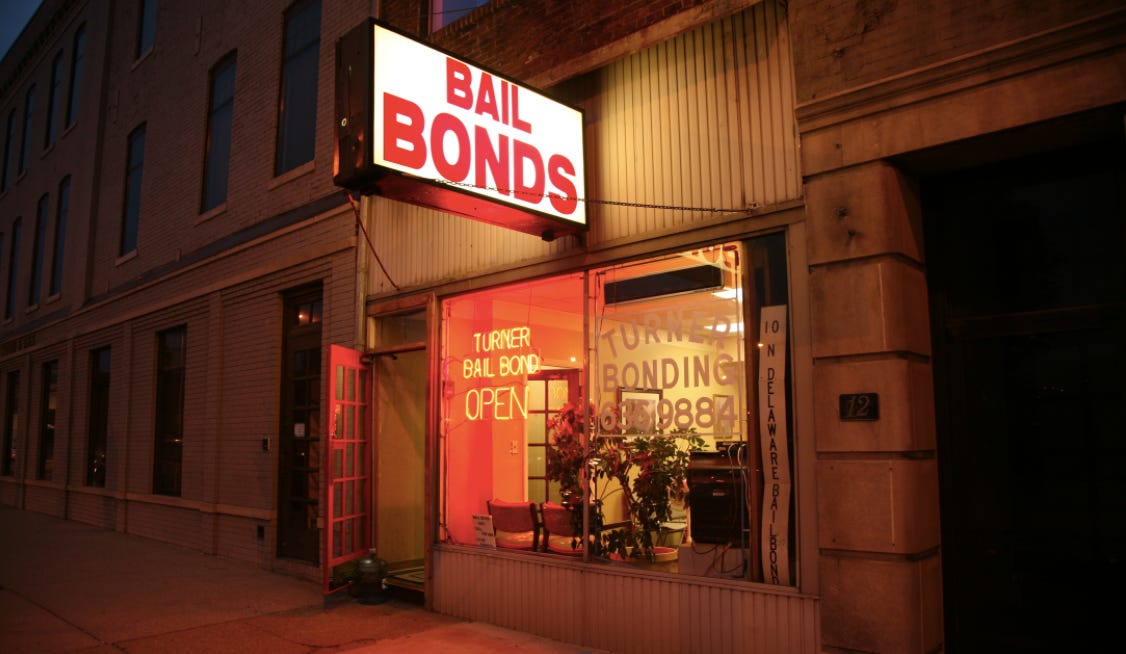80% of Texas County Jail Inmates Who Died of Covid Were Never Convicted
9% of deaths were among inmates who were already paroled and awaiting release
If you needed another reason to abolish the cash bail system, look to Texas.
Researchers at the Lyndon B. Johnson School of Public Affairs at the University of Texas at Austin recently released a report on the high rate of coronavirus cases inside Texas’ county jails. One of the most alarming highlights was that 231 inmates and staff died of Covid-19, and 80% of those inmates had never been convicted of a crime — they were simply too poor to afford bail while awaiting trial. 58% of those who died were eligible for parole. 9% of those who died had actually been paroled and were awaiting release.
The positivity rate in Texas’ county jails is the highest in the nation, and according to the San Antonio Express News, that rate is 490% higher than the positivity rate among the general public.
(Chart by University of Texas at Austin, data by Marshall Project)
The cash bail system keeps nearly 500,000 Americans in jail on any given day simply because they can’t afford bail. Most of them are working-class and jailed for economic crimes, like 22-year-old Houston resident Maranda Lynn O’Donnell. Police arrested her in 2016 for driving on a suspended license and unpaid tolls. Because the young restaurant worker couldn’t afford bail and had no rich family members who could bail her out, the single mother of a four-year-old sat in jail for three days.
As the Covid-19 pandemic continues to surge nationwide, the effects are being felt particularly hard in jails and prisons. The Marshall Project and the Associated Press estimate that, as of November 10, nearly 183,000 inmates have tested positive for the virus. Texas has the most positive cases in its jails and prisons with 25,548, or 2,109 cases per 10,000 inmates. This outpaces the entire federal prison system, which has 20,495 cases, or 1,390 out of 10,000.
Cash bail reform has long been a priority of civil rights activists, though the pandemic adds a sense of urgency. One good example could be found in Philadelphia, where District Attorney Larry Krasner abolished cash bail in 2018 for those charged with nonviolent offenses like possession of small amounts of marijuana, burglary where no one is present, prostitution, and retail theft, among other offenses. Prior to Krasner’s policy, approximately one-third of Philadelphia inmates were incarcerated because they couldn’t afford bail.
Unfortunately, bail reform is a state matter, as the Biden administration would be limited to actions on the federal carceral system. An incoming Attorney General could issue Department of Justice guidelines to local police departments and state Attorneys General, but the policies themselves would have to be passed by city councils and state legislatures.
To learn more about the cash bail system and what states are doing to fight it, read this primer from the Brennan Center for Justice.
(A bail bondsman in Indianapolis, Indiana. Photo by Daniel Schwen/Wikimedia Commons)



